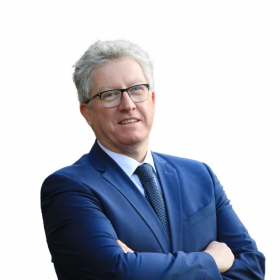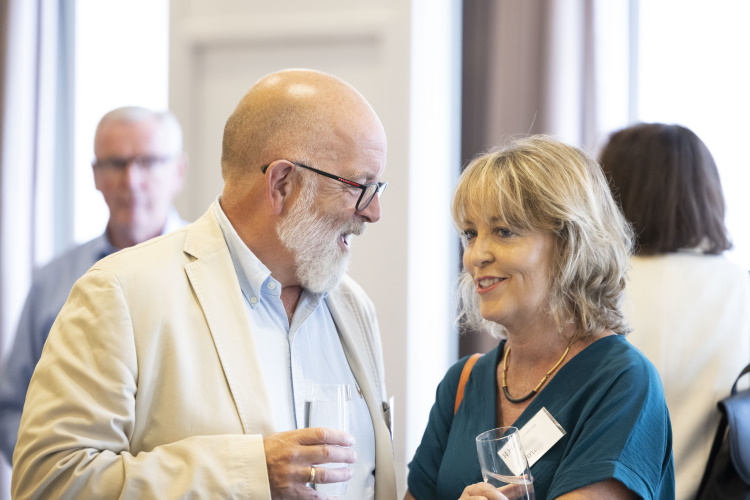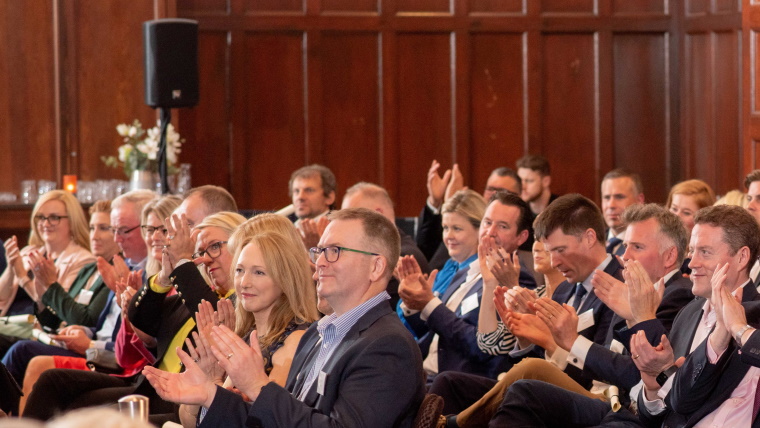
Professor Dáire Keogh CDir
President, Dublin City University
Professor Dáire Keogh CDir began his ten-year term as President of Dublin City University in July 2020.
Professor Keogh, a native of Dublin, is a distinguished historian who served as President of St Patrick’s College Drumcondra. He has published extensively on the history of popular politics, religion, and education in Ireland.
Why did you decide to join the IoD?
I was appointed president of St Patrick’s College, Drumcondra, in 2012. Like many university presidents, I come from an academic background, as an historian, which had not prepared me for the breadth of the task. Conscious of that learning curve, I joined the IoD to equip myself for the governance responsibilities associated with the role.
What do you particularly value from your IoD membership?
I found the Chartered Director programme hugely beneficial. The curriculum was tailored to develop the range of skills required for success in the boardroom, but the camaraderie and peer learning was invaluable. The Institute’s briefing series offers similar opportunities which can be particularly helpful for members from smaller organisations with limited in-house support.
What is the most important lesson, from your personal or business life, that guided you most in being a business leader?
My family was in the licensed trade; an industry which was changing rapidly, but few imagined the utter transformation of recent years. In the face of that flux, my father doubled down and focused on what he was good at, a quality offering with excellent customer service.
The importance of focus has stayed with me. For directors, knowing what your business is, and critically what it is not, is vital to success. This appears conservative, but it is a radical decision to maintain a determined course towards strategic objectives and success without distraction.
Is there someone who has had a major influence on you as a leader? Why and how did this person impact your life?
I have learned much from IoD members, such as Brid Horan, Bernie Gray, and Margaret Sweeney. More broadly, I was fortunate to meet the late Donald Keough, former president of Coca Cola, at an event hosted by another great, Martin Naughton. Don was full of energy and ideas and spoke powerfully about business ethics and illustrated his point with reference to the untold misery inflicted by the infamous Enron accounting scandal of 2001. His core message was simple but profound, it was about the importance of integrity and reputation in business. Directors would enjoy the wisdom, and wit, of his short volume, ‘Ten Commandments for Business Failure’ (2008).
What is the characteristic that you believe every leader should possess?
Self-awareness. As Pete Carroll, the legendary Seattle Seahawks coach put it, ‘the essence of being as good as you can be is figuring out who you are’. Self-knowledge is key to relationships, too, and when we hit the sweet spot is when it is combined with empathy.
What are the biggest challenges and/or opportunities that you have seen over your career to date? How do you overcome or/and optimise these?
Artificial Intelligence (AI) is possibly both the biggest challenge and opportunity I’ve seen. From a research and innovation perspective, given DCU’s strengths in computing and engineering, data analytics and data science, there are obvious opportunities for us to contribute to the development of AI, and its application across a wide range of domains, but also to address the ethical, legal, and regulatory challenges it presents. In terms of teaching and assessment it is a major disrupter, but one which has the potential to help us stretch our ambitions for the capabilities of graduates. IoD Ireland members are acutely aware, too, that it will change the skills-sets required by business. DCU has always been recognised for the career readiness of our graduates, and we will prepare our students to thrive in the AI world.
How has your business evolved and adapted because of these events in recent years? Do you believe it has impacted your future business model?
Covid had an immense impact on education, not simply in terms of interruption and adaption, but by the extent to which it accelerated trends in digital learning which may have taken a decade to achieve.
Education is not transactional, but relational, so it is important that we strike the correct balance in framing remote working policies which address the needs of students and staff.
The advent of the technological universities, too, has greatly altered the Irish higher education landscape. In this new environment it is vital that each of the institutions, ‘traditional universities’ and TU’s, develop a distinctive character, offering, and USP to deliver real choice to students and society.
How do you think leaders can best prepare for the future?
Michaelangelo is reputed to have said ‘ancora imparo’ (I’m still learning) in his mid-80s and whether you’re an artist or a business leader, it’s vital that we keep learning and stretching ourselves. In that context, quality continuous professional development is essential.
What advice would you give to new or aspiring directors in Ireland?
Prepare for the role and take it seriously - remember ‘director’ is a responsibility not a title.

